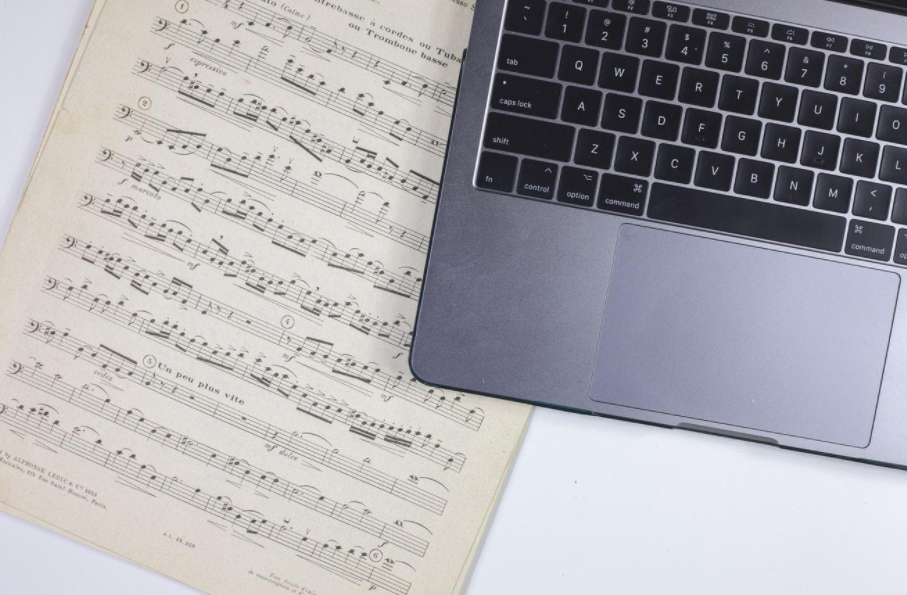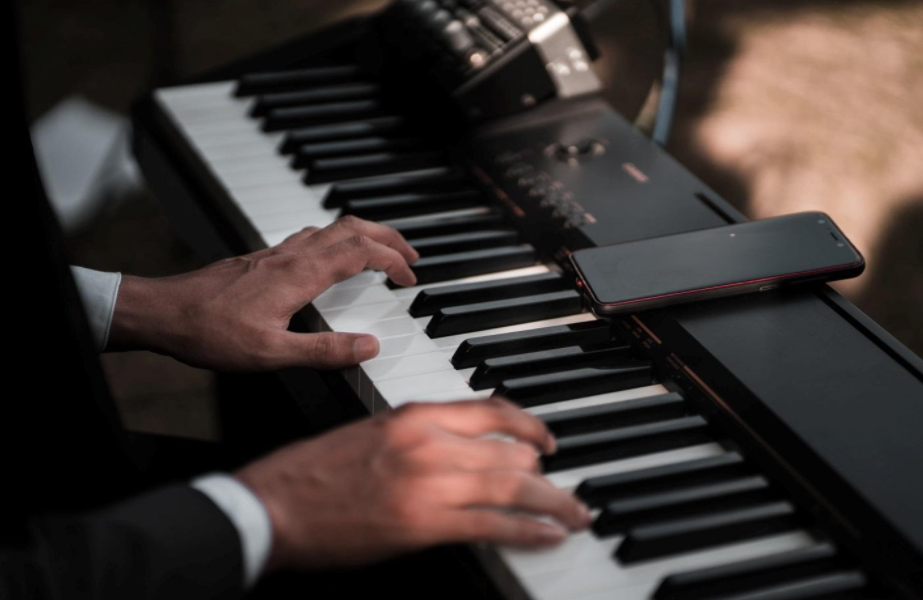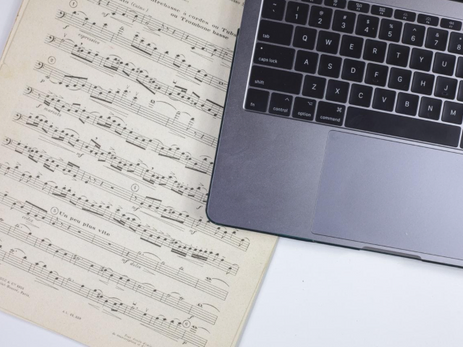Uncategorized
Benefits of Digital Sheet Music for Pianists

https://unsplash.com/photos/deqYi0_DonQ
Computers, tablets, and smartphones have entered every field of human activity and firmly taken their place in modern human’s daily lives. Electronics can make any process smoother and swifter, so there’s no surprise that musicians had invited it into their routine just like the rest of the world did.
Today we will discuss the advantages of digital sheet music, recognizing its impact on pianists’ study, work, and life.
Pioneers of Digital Sheet Music
Before we concentrate on the benefits of digital sheet music, let us pay tribute to musicians who didn’t fear going digital. Brussels Philharmonic Orchestra became the first orchestra in the world that replaced traditional paper sheet music with an electronic one. Now, these musicians perform at all their concerts without any paper notes – their music stands are occupied by tablets.
Until this innovation, the Brussels Philharmonic orchestra was mainly famous for its soundtrack for the movie “The Artist” which received an Oscar in the corresponding nomination in 2012. Now orchestra has a chance to become famous once again as the most progressive assembly of musicians in a world of symphonic music.
Before switching to digital sheet music, the orchestra’s staff had spent several hours a day preparing and copying sheet music. Before the concert, workers had to distribute the scores to each one of more than 100 musicians in the orchestra. Their music archives took up quite a lot of space, too.
Orchestra management welcomed the change: firstly, this innovation allows the orchestra to save on supplying paper notes, which amounts to about 25 thousand euros annually. Secondly, thousands of scores can be kept on each tablet. In addition, pages needn’t be flipped during a concert. As a result, each musician does not tear himself away from the instrument, and papers do not rustle, interrupting the musical experience. There is one more benefit to digital sheet music which is specific to orchestras: if the conductor makes a note in the score, it automatically appears before all musicians.
Musicians used styluses to make marks or notes in their scores. Interestingly, tablets became suitable for use as carriers of digital orchestral scores only after the advent of Smart Stay technology, which allowed the device’s screen to remain turned on while a person is looking at it.
Many professionals have long used tablets and smartphones to work with sheet music, but the Brussels Philharmonic was the first orchestra that went fully digital, showing the rest of us how it’s done!
Maybe you stumbled upon this article because you are writing a paper on technological advancements in the musical industry. If so, we can suggest contacting TrustMyPaper – they can aid you with any academic writing assignments, from essays to presentations.

https://unsplash.com/photos/jjrVtiTAnEQ
18 Benefits to Using Digital Sheet Music
It’s not surprising that modern musicians eliminate paper sheet music from their lives and opt for a more practical and progressive approach.
There are some obvious advantages to choosing digital sheet music, some of which are:
- Even a tablet with an average memory size can easily fit the entire music library of an orchestra.
- Tablet takes up very little space and weighs hardly anything, which cannot be said about paper scores.
- Eliminate one thing from your bag. You probably already carry an electronic device with you every day. Whether it’s a tablet or a cellphone, you can use it to store your sheet music and needn’t carry any extra materials with you, making your daily load lighter and saving space within your bag.
- Digital scores are easy to transport and take with you everywhere.
- No need to flip the pages. One can turn the pages in modern tablets in one click, or even simply use a footswitch. So, no more interrupting to switch to the next page. If tablets are used during a concert, they can even be interconnected and pages can be “flipped” by both musicians themselves and a conductor.
- Availability. Almost all music literature has been digital for a long time. Major music publishers offer clients both paper sheet music and digital versions.
- Helps the environment. Utilizing paper to carry information is so retro, they say – modern people need to consider the impact most of the times our actions and choices have on the planet and try being less wasteful and limit our footprint on the world’s ecology as best we can.
- Accessibility from multiple devices. Digital sheet music is super handy, as it doesn’t limit you to using a single device – you can easily switch from tablet to smartphone, from smartphone to personal computer, getting all benefits of digital scores regardless of their carrier.
- No more writing – you can edit and add notes to your scores straight from your device. If writing is bothersome to you, may we suggest Supreme Dissertations – they can take over some of your academic writing and lighten your daily load.
- The existence of digital sheet music libraries makes electronic scores more swiftly and easily accessible than their paper counterparts.
- It’s easy to find a specific song you are looking for, no need to flip through stacks of papers – one must only enter a keyword and search devise’s library.

https://www.pexels.com/ru-ru/photo/3816115/
- Make your music lessons less chaotic. Having a device responsible for your sheet music allows you to discard all unnecessary papers that crowd your “workspace”.
- Makes learning piano more fun – some apps and programs offer digital scores along with other perks like the ability to adjust the pace, loop part of the song for easy practice, track and get feedback about one’s progress, etc.
- Keep your materials more organized and consolidated. If you’ve been playing piano since the early 2000’s you likely remember running off to the lesson and forgetting your notes, as well as “organizing” your sheet music by stuffing it randomly inside your backpack. Electronic devices that carry digital scores eliminate this struggle – all your sheet music is orderly stored in one place.
- Cut back time on getting physical copies of sheet music.
- Not refusing the progress. There’s no denying or getting away from the influence technology has on us. Going paperless is something we’re all familiar with now. Every area of life, every industry, and sphere of activity has already accepted technological advancements and started benefiting from them – the music industry is doing the same, and you should support this shift and upgrade the way you operate.
- Electronic sheet music can be read easier. With a tablet, you can set larger font size, zoom in, or otherwise edit your sheet music in a way that will make it easier for you to interact with.
- You have many options. Instead of having one or two options when it comes to paper sheet music, now you can choose between a multitude of programs that can hold your scores. You can freely choose an app you find most convenient and use the one which can facilitate your performance the most.
Abandon Paper for Pixels
These are just a few reasons for going digital as a musician. We trust that now that you see some benefits electronic sheet music can provide, you will consider giving it a try soon. It is important to understand that opting for digital scores instead of paper ones doesn’t just serve personal convenience, but is an objectively sounder choice for the world to make. So, it’s time to cast aside your doubts and invite digital sheet music into your life!

